The change in socio-environmental synthesis workshop brought together five scholars to discuss theories and methods used to study change in socio-environmental systems. Over the course of the first two days, each scholar presented a lecture on the theories and methods they use from their own disciplines as well as emerging interdisciplinary frameworks and approaches for studying change. Participants were given time to reflect upon and further discuss the content of the presentations in small group discussions and informal conversation during the second half of the workshop. Scholars highlighted in their presentations the evolution and integration of theories and methods from various disciplines into interdisciplinary frameworks, and they situated their own work applying these theories and methods to complex dynamic socio-environmental systems.
Speakers
- Stephen Carpenter, University of Wisconsin–Madison
- Resilience in socio-ecological systems
- Simon Levin, Princeton University
- Collective decision making and collective action
- Barbara Cosens, University of Idaho
- Law and socio-ecological systems
- Karen Seto, Yale University
- Urbanization in the 21st century
- Oran Young, UC Santa Barbara
- Institutional fit in complex systems
An edited video recording of each lecture is available below, along with a written summary of the lecture contents, an associated reading list, and the scholar's slides. A full playlist of the video lectures is available here.
Presenters
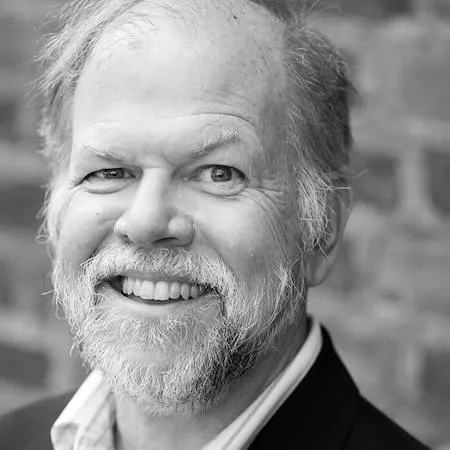
Stephen R. Carpenter
Stephen Russell (Steve) Carpenter is a leader of whole-ecosystem experiments and adaptive ecosystem management focused on freshwaters. Topics include trophic cascased and their effects on production and nutrient cycling, contaminant cycles, freshwater fisheries, eutrophication, nonpoint pollution, ecological economics of freshwater, and resilience of ecosystems and social-ecological systems. Carpenter serves as the Director of the Center for Limnology at the University of Wisconsin-Madison, where he is the Stephen Alfred Forbes Professor of Zoology. He is a member of the US National Academy of...

Stephen R. Carpenter
Stephen Russell (Steve) Carpenter is a leader of whole-ecosystem experiments and adaptive ecosystem management focused on freshwaters. Topics include trophic cascased and their effects on production and nutrient cycling, contaminant cycles, freshwater fisheries, eutrophication, nonpoint pollution, ecological economics of freshwater, and resilience of ecosystems and social-ecological systems. Carpenter serves as the Director of the Center for Limnology at the University of Wisconsin-Madison, where he is the Stephen Alfred Forbes Professor of Zoology. He is a member of the US National Academy of Sciences; a fellow of the American Academy of Arts and Sciences; and a foreign member of the Royal Swedish Academy of Sciences. Carpenter is the 2011 laureate of the Stockholm Water Prize. Other notable awards include a Pew Fellowship in Conservation and Environment, the G. Evelyn Hutchinson Medal of the American Society of Limnology and Oceanography, the Robert H. MacArthur Award from the Ecological Society of America, the Excellence in Ecology Prize from the Ecology Institute, and the Naumann-Thienemann medal of the International Society for Limnology. Carpenter is Chair of the Science Committee for the Program on Ecosystem Change and society of the International Council of Science. He is the co-Editor in Chief of Ecosystems, and a member of the governing board for the Stockholm Resilience Center. He received a BA from Amherst College (1974), MS From University of Wisconsin-Madison (1976), and PhD from University of Wisconsin-Madison (1979). From 1979-1989 he served as Assistant and Associate Professor at the University of Notre Dame. He joined the University of Wisconsin-Madison faculty in 1989.
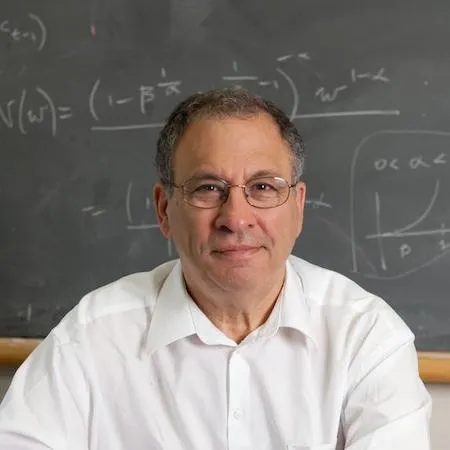
Simon Levin
Dr. Simon A. Levin is the James S. McDonnell Distinguished University Professor in Ecology and Evolutionary Biology at Princeton University and the Director of the Center for BioComplexity in the Princeton Environmental Institute. His research examines the structure and functioning of ecosystems, the dynamics of disease, and the coupling of ecological and socioeconomic systems. Levin is a Fellow of the American Academy of Arts and Sciences and the American Association for the Advancement of Science, a Member of the National Academy of Sciences and the American Philosophical Society, and a...

Simon Levin
Dr. Simon A. Levin is the James S. McDonnell Distinguished University Professor in Ecology and Evolutionary Biology at Princeton University and the Director of the Center for BioComplexity in the Princeton Environmental Institute. His research examines the structure and functioning of ecosystems, the dynamics of disease, and the coupling of ecological and socioeconomic systems. Levin is a Fellow of the American Academy of Arts and Sciences and the American Association for the Advancement of Science, a Member of the National Academy of Sciences and the American Philosophical Society, and a Foreign Member of the Istituto Veneto di Scienze, Lettere ed Arti, and the Istituto Lombardo (Milan).
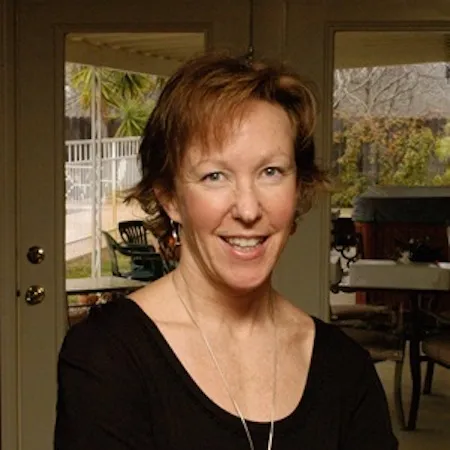
Barbara Cosens
Barbara Cosens is a Professor with the University of Idaho (UI) College of Law and the Waters of the West Graduate Program, which includes options for concurrent JD/MS and JD/PhD degrees. She coordinates the Natural Resources and Environmental Law Program at UI and teaches in the area of water law. Barbara is a member of the Universities Consortium on Columbia River Governance and has worked with Nigel Bankes, University of Calgary Faculty of Law, on two projects funded by the Program on Water Issues at the Munk School of Global Affairs: one on mechanisms for flexibility and adaptability in...

Barbara Cosens
Barbara Cosens is a Professor with the University of Idaho (UI) College of Law and the Waters of the West Graduate Program, which includes options for concurrent JD/MS and JD/PhD degrees. She coordinates the Natural Resources and Environmental Law Program at UI and teaches in the area of water law. Barbara is a member of the Universities Consortium on Columbia River Governance and has worked with Nigel Bankes, University of Calgary Faculty of Law, on two projects funded by the Program on Water Issues at the Munk School of Global Affairs: one on mechanisms for flexibility and adaptability in international water agreements; and the other on U.S. and Canada domestic law in international law. She is co-chair of a project made possible through support from the NSF-funded National Socio-Environmental Synthesis Center, SESYNC: Adaptive Governance in Regional Water Systems to Manage Resilience in an era of Changing Climate.
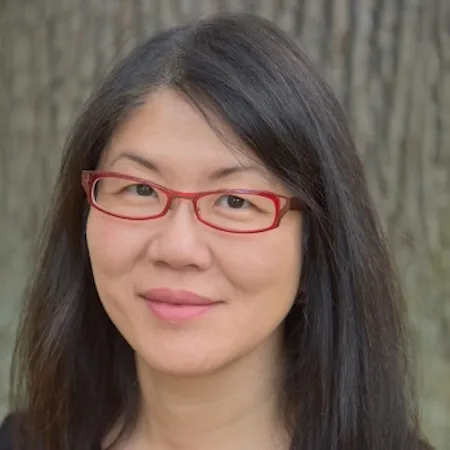
Karen Seto
Dr. Karen Seto is Associate Dean of Research and Professor of Geography and Urbanization Science at the Yale School of Forestry & Environmental Studies. She is an expert in urbanization and global change, urban mitigation of climate change, and satellite remote sensing. Karen has pioneered methods to reconstruct land-use dynamics with satellite data and to forecast the expansion of urban areas. She has conducted urbanization research in China for 20 years and in India for 10. She was one of the two Coordinating Lead Authors for the urban chapter of Working Group III of the Intergovernmental...

Karen Seto
Dr. Karen Seto is Associate Dean of Research and Professor of Geography and Urbanization Science at the Yale School of Forestry & Environmental Studies. She is an expert in urbanization and global change, urban mitigation of climate change, and satellite remote sensing. Karen has pioneered methods to reconstruct land-use dynamics with satellite data and to forecast the expansion of urban areas. She has conducted urbanization research in China for 20 years and in India for 10. She was one of the two Coordinating Lead Authors for the urban chapter of Working Group III of the Intergovernmental Panel on Climate Change's Fifth Assessment Report, and has served on many U.S. National Research Council (NRC) Committees, including the current NRC Committee on Pathways to Urban Sustainability. From 2000 to 2008, she was on the faculty at Stanford University, where she held joint appointments in the Woods Institute for the Environment and the School of Earth Sciences. She joined the Yale faculty in 2008.
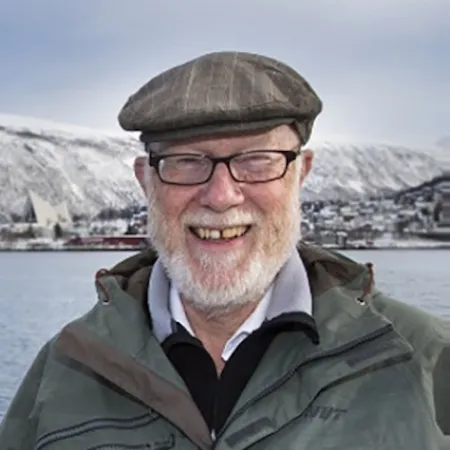
Oran Young
Dr. Oran Young is a research professor at the Marine Science Institute and distinguished professor emeritus and co-director of the Program on Governance for Sustainable Development at the Bren School of Environmental Science & Management at the University of California, Santa Barbara. His research focuses on theories of environmental governance with applications to issues relating to climate change, Oran served for six years as founding chair of the Committee on the Human Dimensions of Global Change of the U.S. National Academy of Sciences. He chaired the Scientific Steering Committee of the...

Oran Young
Dr. Oran Young is a research professor at the Marine Science Institute and distinguished professor emeritus and co-director of the Program on Governance for Sustainable Development at the Bren School of Environmental Science & Management at the University of California, Santa Barbara. His research focuses on theories of environmental governance with applications to issues relating to climate change, Oran served for six years as founding chair of the Committee on the Human Dimensions of Global Change of the U.S. National Academy of Sciences. He chaired the Scientific Steering Committee of the international project on the Institutional Dimensions of Global Environmental Change (IDGEC). He was a founding co-chair of the Global Carbon Project and from 2005 to 2010 chaired the Scientific Committee of the International Human Dimensions Programme on Global Environmental Change. An expert on Arctic issues, Dr. Young chaired the Steering Committee of the Arctic Governance Project and is the science advisor to the North Pacific Arctic Conferences. Past service in this realm includes co-chair of the Working Group on Arctic International Relations, member of the US Polar Research Board, founding board member of the Arctic Research Consortium of the United States, vice-president of the International Arctic Science Committee, chair of the Board of Governors of the University of the Arctic, consultant to the Standing Committee of Parliamentarians of the Arctic Region, and co-chair of the 2004 Arctic Human Development Report. He is the author of more than 20 books. His recent books include Institutional Dynamics: Emergent Patterns in International Environmental Governance (2010) and On Environmental Governance: Sustainability, Efficiency, and Equity (2013). He is currently working on a book tentatively entitled Governing Complex Systems:Sustainability in the Anthropocene.